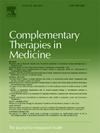Pharmacokinetic interactions of fruit juices with antihypertensive drugs in humans: A systematic review and meta-analysis
IF 3.5
3区 医学
Q1 INTEGRATIVE & COMPLEMENTARY MEDICINE
引用次数: 0
Abstract
Introduction
Fruit juice-antihypertensive drug interactions can lead to subtherapeutic or supratherapeutic outcomes. This systematic review and meta-analysis assesses such interactions and their potential clinical relevance.
Methods
PubMed, Scopus, and Science Direct databases were searched from their inception through June 2024. Eligible studies were those that investigated the effects of fruit juice on the pharmacokinetics of antihypertensive drugs. I2 was used to determine heterogeneity among studies, and a random effect model was employed for meta-analysis. This review adhered to PRISMA guidelines and was registered in PROSPERO (CRD42022340159).
Results
Fifty-one studies were included. Most of them were open-label crossover trials. Grapefruit juice (GFJ), an inhibitor of organic-anion-transporting polypeptide (OATP) transporters and cytochrome P450 (CYP) 3A4, significantly decreased the AUC and Cmax of aliskiren and celiprolol by approximately 80–90 %. Conversely, the AUC and Cmax of calcium channel blockers decreased with variable degrees when co-administered with GFJ. Apple and orange juices have comparable effects on certain medications. Most studies had small sample sizes and were of moderate quality. Hemodynamic effects were not assessed in most studies; thus, the clinical significance of these interactions remains uncertain and should be further investigated.
Conclusion
Co-administration of fruit juice with antihypertensive drugs can result in an increase or decrease in drugs’ bioavailability, depending on the drugs’ metabolism route and the involvement of transporters. Though further studies are needed to confirm clinical relevance in hypertensive patients, it is advised to avoid co-consumption of fruit juice with drugs showing significant changes in pharmacokinetic parameters to prevent subtherapeutic or supratherapeutic effects.
果汁与人类降压药物的药代动力学相互作用:系统综述和荟萃分析。
果汁与降压药物相互作用可导致亚治疗或超治疗结果。本系统综述和荟萃分析评估了这些相互作用及其潜在的临床相关性。方法:检索PubMed、Scopus和Science Direct数据库,检索时间从建站到2024年6月。合格的研究是那些调查果汁对抗高血压药物的药代动力学影响的研究。I2用于确定研究间的异质性,meta分析采用随机效应模型。该综述遵循PRISMA指南,并在PROSPERO注册(CRD42022340159)。结果:纳入51项研究。其中大多数是开放标签交叉试验。葡萄柚汁(GFJ)是有机阴离子转运多肽(OATP)转运体和细胞色素P450 (CYP) 3A4的抑制剂,可显著降低阿利克伦和塞利洛尔的AUC和Cmax约80-90%。相反,与GFJ联合使用时,钙通道阻滞剂的AUC和Cmax有不同程度的降低。苹果汁和橙汁对某些药物的作用相当。大多数研究样本量小,质量中等。大多数研究没有评估血液动力学效应;因此,这些相互作用的临床意义仍不确定,应进一步研究。结论:果汁与降压药合用可导致药物的生物利用度升高或降低,这取决于药物的代谢途径和转运体的参与。虽然需要进一步的研究来证实其与高血压患者的临床相关性,但建议避免与药代动力学参数有明显变化的药物同时饮用果汁,以防止产生亚治疗或超治疗作用。
本文章由计算机程序翻译,如有差异,请以英文原文为准。
求助全文
约1分钟内获得全文
求助全文
来源期刊

Complementary therapies in medicine
医学-全科医学与补充医学
CiteScore
8.60
自引率
2.80%
发文量
101
审稿时长
112 days
期刊介绍:
Complementary Therapies in Medicine is an international, peer-reviewed journal that has considerable appeal to anyone who seeks objective and critical information on complementary therapies or who wishes to deepen their understanding of these approaches. It will be of particular interest to healthcare practitioners including family practitioners, complementary therapists, nurses, and physiotherapists; to academics including social scientists and CAM researchers; to healthcare managers; and to patients. Complementary Therapies in Medicine aims to publish valid, relevant and rigorous research and serious discussion articles with the main purpose of improving healthcare.
 求助内容:
求助内容: 应助结果提醒方式:
应助结果提醒方式:


